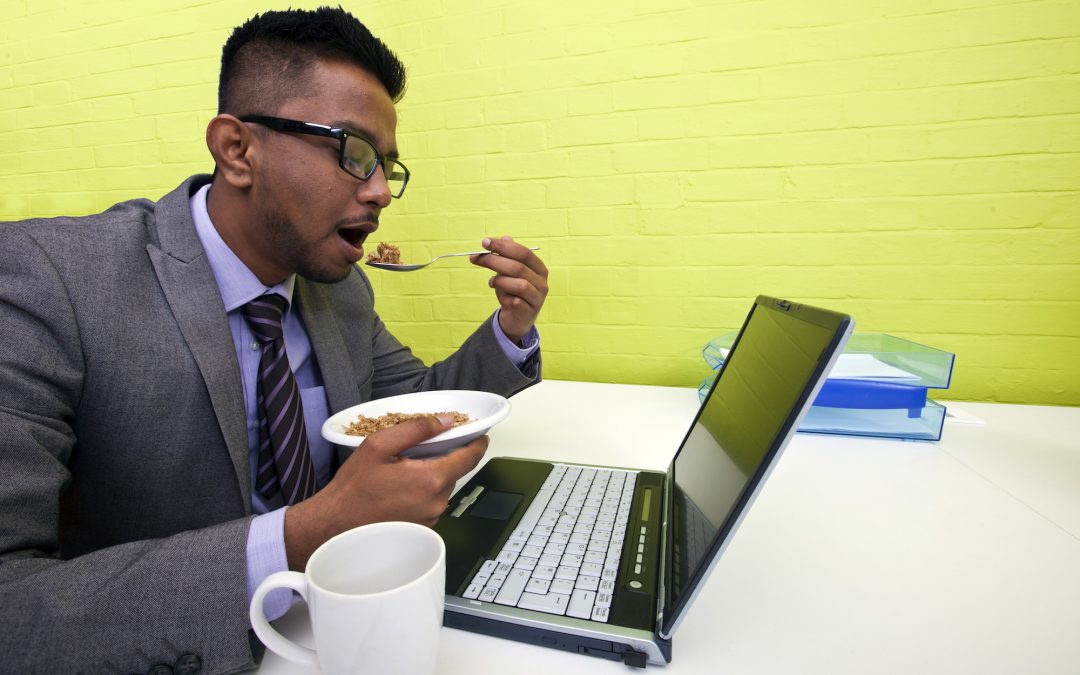A computer that runs well, is quiet, cool to the touch, and a multi-tasking master is something that we often take for granted. Bad habits form fast and your well-running machine could be at risk of breaking down! Break these bad computer habits now to prevent a total break down later.
–
Here are 10 bad computer habits to break now, before something really does break!
–
1. Eating and drinking around your computer
Working lunches are quite normal these days so chances are that you’ll spend some time eating and drinking in very close proximity to your computer. In addition to the possibility of spilling something like soda or coffee on your computer and paying for a costly repair, your keyboard is a primary source of bacteria, dirt and dust. Make sure you are cautious with food and drinks around your computer and clean your keyboard regularly!
2. Never restarting
If you feel like your machine is a bit sluggish and not running as fast as you’d like, don’t forget about shutting it down and restarting it every once in a while. Just like humans, computers need to shutdown and recharge sometimes to keep running smooth.
3. Wearing out your battery
Your computer battery will degrade over time but to slow down the decline, don’t routinely run your battery down to 0% before you recharge. Your machine works best with shallow discharges and frequent recharges versus running it down to empty.
4. Using the same password or weak passwords
Don’t leave yourself vulnerable to hackers by using the same password or weak passwords. A password management system such as LastPass can help you generate and keep track of passwords.
5. Keeping apps, plugins and programs you don’t use
If you have a particular program on your computer that you do not use, trash it. More than likely that unused program is not being updated and patched on a regular basis. This creates an opportunity for hackers and creates more clutter on your system.
6. Not backing up your data
Develop a system for backing up your computer on a regular basis so you don’t wind up losing data without warning. Make multiple backups of all your important data to an external hard drive, or via a cloud-based backup service.
7. Using public Wifi
Always ere on the side of caution when doing work in coffee shops, restaurants, airports and other public locations. If possible, use a virtual private network (VPN) that will ensure your information is encrypted and not easily accessed by hackers.
8. Working with your laptop on your lap or soft surface
When your laptop is on a desk or flat surface, the rubber feet raise it up enough to allow airflow. Using a laptop on your lap or other soft surface can block airflow and lead to overheating which can reduce the lifespan of the hardware inside.
9. Failing to install updates
Software updates are released for a variety of reasons including added features, bug fixes, and security patches. Installing updates, particularly operating system updates and security software updates—is essential to keeping your devices stable and secure.
10. Clicking email links that look suspicious
If you didn’t expect it, reject it! Be skeptical of any email messages you aren’t expecting. Password thieves may insist that immediate action is necessary and may pretend to be a friend or some other trusted source. Don’t let these scare tactics trick you into making a very big mistake. It’s likely a scam.
Technology shouldn’t be stressing you out! If it is, we can help. Give us a call at 518-581-7200 and let’s talk! We’ll give you a FREE consultation. Relax, and let us handle the tech.

















